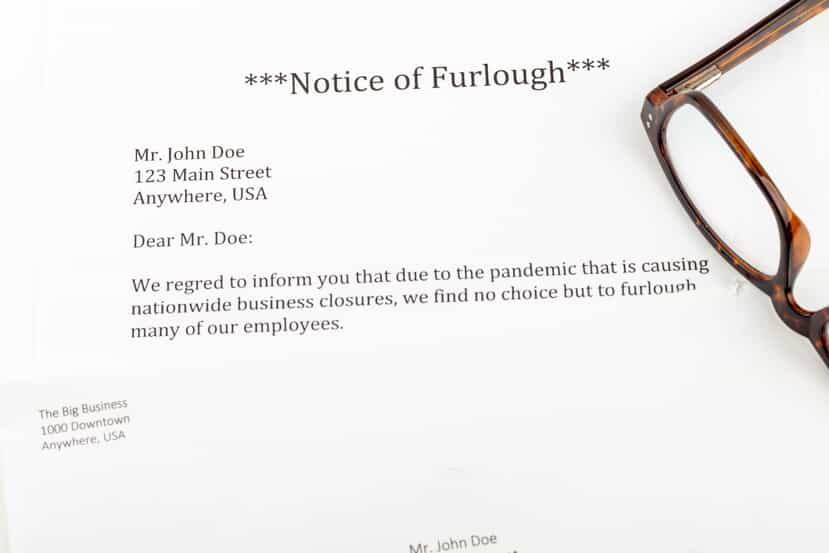“Furlough” is not a term recognized in the practice of law or a legal term at all. Furloughs are generally referred to as mandatory, temporary, and unpaid time-off work and/or a reduction in hours/days that an employee may work. In other words, while you are not actively providing some or all job services during a furlough, you are still employed (albeit with less or no pay). As such, it does not trigger final paycheck and vacation payouts. It is essentially a temporary unpaid leave of absence or reduction in work. The key to a furlough is it is meant to be “temporary.” On the other hand, a “layoff” is a permanent job termination, triggering final pay requirements.
Many employers are opting for furloughs during the COVID-19 pandemic, which allows them to reduce labor costs without completely letting go of employees.
This post addresses issues pertaining to furloughs caused by COVID-19, where your employer furloughs you for business reasons (e.g., shortage of business and temporary closure) and does not address scenarios where you are forced to take time off because you have become sick from COVID-19 or need to stay home to care for your child.
Those issues are addressed in our post about paid family and sick leave you may be entitled to under the newly enacted Families First Coronavirus Response Act (“FFCRA”). If you are furloughed, the FFCRA does not provide paid family or sick leave. However, there are issues you should be aware of depending on whether you are an exempt (salary) employee versus non-exempt (hourly) employee.
Non-Exempt (Hourly) Employee: If you are an hourly (non-exempt) employee, generally, your employer may schedule you for fewer days or hours, and simply pay you the hours you work. But, if your employer requires you to report to the workplace (or call-in to determine whether you are going to work the day), your employer may likely owe you at least two hours of reporting time pay. Likewise, benefits such as health insurance will generally be governed by your employer’s policy. Insurance carriers will likely follow the policy; however, some carrier contracts may have other stipulations, e.g., how long an employee can stay on a plan if he or she is on leave or working reduced hours before he/she needs to go on COBRA. You will need to check with your supervisor or your employer’s Human Resources department to determine the answer to this issue. If you are furloughed because of COVID-19, you may be entitled to collect unemployment insurance, which our blog post here covers.
Exempt (Salary) Employees: Salary (exempt) employees must be paid the same minimum salary for each paid period. In California, to maintain exempt status, your employer must pay you a monthly salary equivalent to no less than two times the state minimum wage for full-time employment, which is currently set at $4,160 for large employers in California (26 employees or more). This amount may not be subject to deduction, except for specified circumstances initiated by you (the employee), and cannot be pro-rated for part-time work, or else exempt status is lost. If exempt status is lost, your employer will be responsible for ensuring you receive minimum wage and overtime premium pay for hours worked. Employers may, however, make a permanent cut to hours and/or days of work and/or the salary amount. Advance reductions in salaried employee pay to reflect long-term business needs does not destroy an employee’s exempt status. But day-to-day or short-term deductions from an employee’s salary would.
Some of the issues relating to furloughs, such as when COBRA is triggered and whether exempt status is retained, can be tricky.
It is best to consult with experienced employment lawyers who can counsel you depending on your circumstance. At Haeggquist & Eck, we can provide such counsel based on our attorneys’ decades of combined experience. We are among the preeminent employment law firms in San Diego and nationwide, and we are more than capable of helping you favorably resolve a dispute between you and your employer at this time.
If you need an attorney to help you assert your rights, reach out to Haeggquist & Eck, LLP online or by calling (619) 342-8000.





